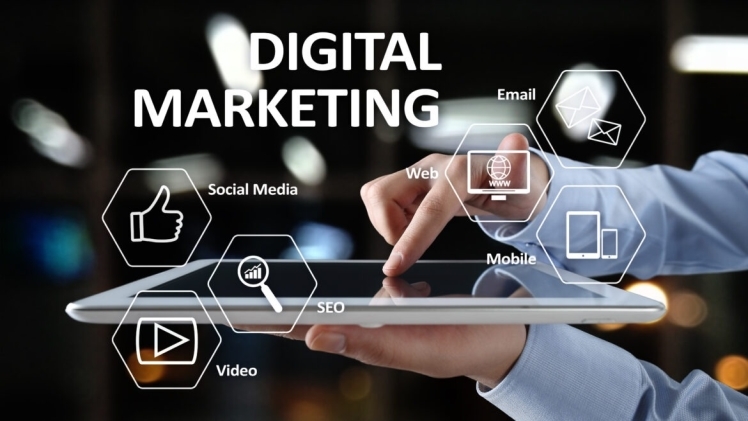In the era of digital transformation, the landscape of marketing has undergone a profound shift, with businesses increasingly turning to digital channels to connect with their audience. Digital marketing has become a cornerstone of modern business strategy, offering a dynamic and versatile toolkit for reaching and engaging consumers in the online realm.
The Evolution of Digital Marketing:
Digital marketing encompasses a broad range of online strategies and tactics aimed at promoting products or services. Its evolution has been closely intertwined with the rise of the internet and the proliferation of digital technologies. From the early days of email marketing and banner ads to the sophisticated strategies employed today, Digital Marketing Course has become an essential component of the overall marketing mix.
The Power of Data-Driven Insights:
One of the key advantages of digital marketing is the ability to leverage data for strategic decision-making. Unlike traditional forms of marketing, digital channels provide a wealth of data that marketers can use to understand consumer behavior, preferences, and engagement patterns. Analyzing this data allows businesses to refine their strategies, target specific demographics, and measure the effectiveness of their campaigns with unprecedented precision.
Tools like Google Analytics, social media analytics, and customer relationship management (CRM) systems empower marketers to track key performance indicators (KPIs) and adjust their approach in real-time. This data-driven approach not only enhances the efficiency of marketing efforts but also enables a more personalized and relevant experience for the target audience.
Search Engine Optimization (SEO):
In the vast landscape of the internet, being discoverable is crucial for businesses. This is where Search Engine Optimization (SEO) plays a pivotal role. SEO involves optimizing a website’s content and structure to rank higher in search engine results, making it more likely that potential customers will find and visit the site.
Effective SEO requires an understanding of search engine algorithms, keyword research, and on-page and off-page optimization techniques. By investing in SEO, businesses can increase their online visibility, attract organic traffic, and build credibility with both search engines and users.
Social Media Marketing:
Social media platforms have become integral to the daily lives of billions of people worldwide. Recognizing this, businesses use social media marketing to connect with their audience, build brand awareness, and drive engagement. Platforms like Facebook, Instagram, Twitter, and LinkedIn offer diverse opportunities for targeted advertising and organic content distribution.
Social media marketing goes beyond traditional advertising; it involves creating compelling content that resonates with the target audience, fostering community engagement, and leveraging user-generated content. The immediacy of social media allows businesses to interact with their audience in real-time, humanizing their brand and building authentic connections.
Content Marketing:
Content is the backbone of digital marketing. Whether it’s blog posts, videos, infographics, or podcasts, high-quality content is essential for attracting and retaining an online audience. Content marketing focuses on creating valuable, relevant, and consistent content to engage and educate consumers.
A well-executed content marketing strategy can position a brand as an authority in its industry, enhance search engine visibility, and drive organic traffic. Content marketing is not just about promoting products; it’s about telling a compelling story and providing solutions to the audience’s needs and challenges.
Paid Advertising:
While organic strategies like SEO and content marketing are crucial, paid advertising remains a powerful tool for quickly reaching a targeted audience. Platforms like Google Ads, Facebook Ads, and LinkedIn Ads allow businesses to create highly targeted campaigns based on demographics, interests, and online behavior.
Paid advertising offers flexibility in budgeting and allows for precise measurement of return on investment (ROI). It’s an effective way to increase visibility, drive traffic, and generate leads in a competitive online landscape.
Email Marketing:
Email marketing, though one of the oldest forms of digital marketing, remains highly effective. It involves sending targeted messages to a list of subscribers, nurturing leads, and maintaining communication with existing customers. Email marketing allows for personalized messaging, automation, and segmentation, ensuring that the right message reaches the right audience at the right time.
Building and maintaining a quality email list is a valuable asset for businesses, providing a direct line of communication with interested and engaged prospects.
Conclusion:
In the digital age, where consumers are increasingly connected online, digital marketing has become a linchpin for business success. From leveraging data-driven insights and optimizing for search engines to engaging on social media, creating compelling content, and utilizing paid advertising, a comprehensive digital marketing strategy is essential for businesses looking to thrive in the competitive online landscape. As technology continues to evolve, embracing and adapting to the latest trends in digital marketing will be crucial for staying ahead and building lasting connections with a digital-savvy audience.





